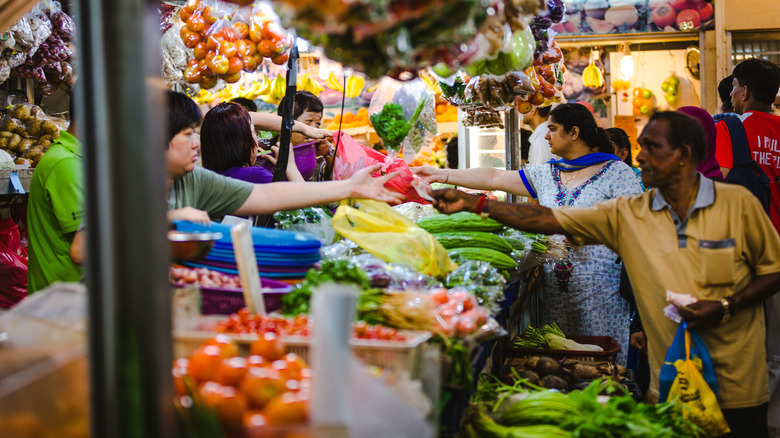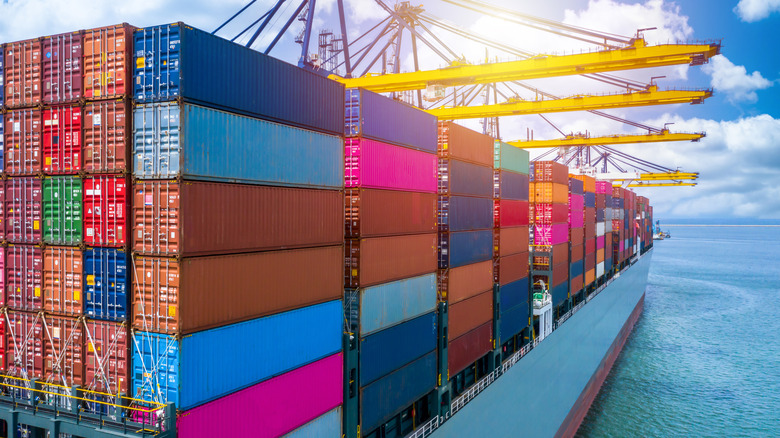Why Singapore Is So Hard Hit By Food Inflation
The small island of Singapore is a melting pot of cultures rooted in unique and varied cuisine that Serious Eats states is as diverse as its people. Known for its globally-inspired street food available at markets called hawker centers, Singapore features a seemingly endless array of dishes influenced by the cuisine of surrounding countries and a significant immigrant population. Its flavorful and varied fare makes it stand out, but Singapore is not immune to recent hardships caused by food inflation and is struggling with food insecurity for several reasons.
According to CNBC, like so many other countries, Singapore began struggling with inflated food costs during the pandemic, which were only exacerbated by the disruption in imports due to the war in Ukraine. Singaporean hawkers have seen prices on essential ingredients like cooking oil, meat, and eggs increase by 30% to 45% but are feeling pressured to avoid price hikes in order to maintain their customer base.
Recent food export bans have also fanned the flames of food inflation which seem to be engulfing Singapore. In 2021, the island imported 34% of its chicken from Malaysia, which recently enacted a poultry export ban that decimated Singapore's live chicken supply (per CNBC). The lack of diversification in importers coupled with the looming increase in global food shortages is creating a worrisome situation for Singapore.
Singapore relies heavily upon imports
As Singapore moves forward into an unstable food future, CNBC notes that its most concerning issue stems from its reliance on imports from a small number of neighboring countries. Singapore's government has focused on increasing household incomes and gross domestic product, relying on food imports instead of strengthening the island's natural resources and agriculture.
Singapore imports 90% of its food supply from other countries, making it more vulnerable to serious issues caused by global food inflation that will likely get worse before letting up in 2023 (per CNBC). As other countries grapple with their own food insecurities and enact export bans, Singapore struggles to diversify its list of importers in the short-term as many exporters don't have fresh crops available year-round.
According to the Singapore Food Agency, the country's government has enacted a plan called "30 by 30," which aims to increase food production on the island so that it can meet 30% of its own nutritional needs by 2030. In the meantime, policymakers plan to diversify imports, subsidize impoverished residents, and increase global food market stability by working with countries to improve their food production structures.

